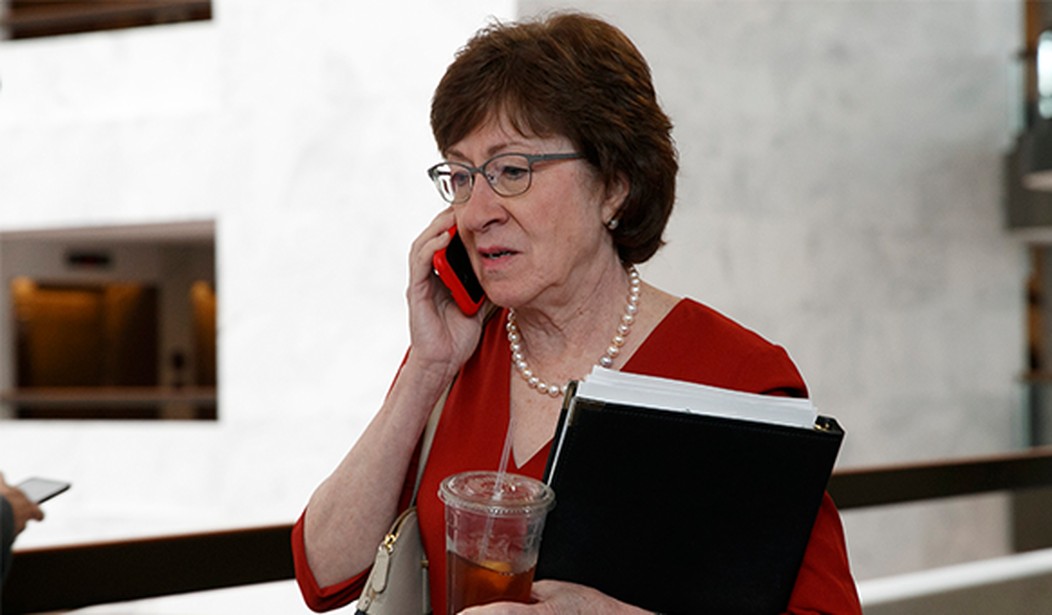A group of Republican senators is concerned that the National Telecommunications and Information Administration (NTIA) is imposing rules on broadband deployment funding in the infrastructure bill that encourages the growth of government-owned networks (GONs) and imposes pricing standards that runs contrary to the law passed by Congress.
Thirteen senators co-signed a letter to Department of Commerce Secretary Gina Raimondo in August asking for changes to the NTIA’s Notice of Funding Opportunity (NOFO) in regards to internet funding in the Broadband Equity, Access and Deployment (BEAD) Program. Led by Susan Collins (R-Maine), the coalition argues that NTIA’s plan “undermines or conflicts with congressional intent” and hopes “that NTIA will expeditiously publish revisions and clarifications to the NOFO to address the…concerns.”
The letter argues that NTIA is supposed to distribute the funds equitably and without discrimination, but the NTIA funding notice does not create such a level playing field. The notice pushes for the incorporation of “non-traditional broadband providers” such as municipalities, cooperatives, Native American tribes and nonprofits by requiring that final proposals include a description by states of how they ensured the participation of those entities. In fact, states must justify awards to traditional broadband providers as the NOFO requires them to explain grants to that category if at least one non-traditional provider has submitted a competing proposal.
The senators note that the Infrastructure Investment and Jobs Act (IIJA) prohibits the preemption of state laws regarding the formation of government-owned broadband networks, but the NTIA’s funding notice strongly encourages states to waive such laws for this broadband funding. This provision could affect some 20 states that prohibit or limit government internet networks.
Recommended
“These preferences are not only inconsistent with the IIJA, but also will deter State broadband offices from selecting the provider that is best equipped to deliver broadband to unserved and underserved households,” the letter states.
The senators also point out that the NOFO reeks of rate regulation. IIJA prohibits the NTIA from regulating broadband service rates and the letter points out that Raimondo recognized this provision in testimony before Congress in April. But the NOFO suggests a price point of $30 for states to use as a standard for low-cost options, which “appears to be an attempt to pressure Eligible Entries to set rates deemed appropriate by NTIA,” the letter states. The senators point out that providers currently offer low-cost options as a condition of some of the federal funding they already receive through various programs.
The funding notice also prohibits all pricing options based on data usage, a common factor that providers use for different tiers of service. The senators point out this provision “could discourage provider participation by conditioning grants on substantial changes to their current practices.”
The letter also notes that NTIA’s requitement that providers offer low-cost, high-speed plans to all middle-class households via BEAD-funded networks is an indirect form of rate regulation, especially given that the law has no term for middle-class affordability plans.
“Congress did not invite States to adopt rate regulations that the statute plainly prohibits, nor can NTIA go beyond the statutory affordability initiatives in the law,” the letter states. “Unfortunately, the NOFO does not fully conform to this clear limitation and, if NTIA or States move in this direction, it could deter participation in the BEAD program.”
The senators say that as part of IIJA, Congress established the Affordable Connectivity program at the Federal Communications Commission so that eligible households can get a $30 monthly credit to any internet service offering. The law also required providers receiving BEAD funding to offer a low-cost broadband service option for low-income consumers.
Senators also expressed concern that the NTIA review process for this program is mired in red tape, requiring a lengthy nine-step process that has some requirements beyond the expertise of most state broadband offices. The process “is likely to mire State broadband offices in excessive bureaucracy and delay connecting unserved and underserved Americans as quickly as possible,” they argue.
Hopefully, Secretary Raimondo will heed the call of the Republican senators and re-examine the NOFO requirements. There are clearly some contradictions with congressional intent that will only harm the goal of closing the digital divide.
Johnny Kampis is director of telecom policy for the Taxpayers Protection Alliance.
























Join the conversation as a VIP Member